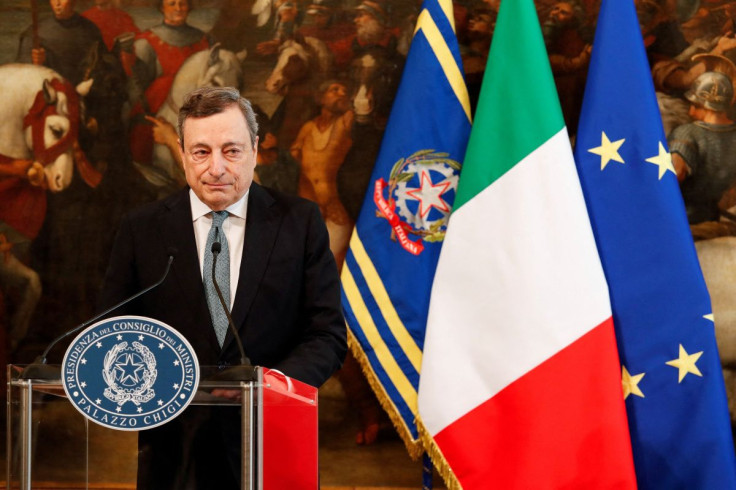‘Super Mario’ Takes A Beating, So Does Italy

After the lull, here comes the storm. A failed political leadership, negative interest rates, and the war in Eastern Europe have done in Italy.
The war, inflation and looming elections have created a perfect storm in the EU's third-largest economy, which will hit the nation on multiple counts.
However, the country's beleaguered Prime Minister Mario Draghi had tried to cast aside the negativity last month-end.
Italy's economy is still doing "relatively well," Draghi said after a summit of EU leaders in Brussels in June.
But when it came to social unrest in the country, the former head of the European Central Bank washed his hands on the same occasion by saying unless citizens' purchasing power is increased, it is difficult to attain "social peace."
Seventy-four-year-old Draghi offered to quit on July 14 after a leading group in his fractious coalition refused to support him during a trust vote. However, his resignation was rejected by the head of state. But Draghi's fate still hangs in the balance.
Plagued by the pandemic, Italy's economic output fell 9 percent in 2020. However, Draghi managed to bring it back with over 7 percent growth last year. The prime minister was expected to repeat the growth momentum this year, too. But the war, involving Russia, which meets 40 percent of the energy needs of the 27-member EU, put spokes into his growth plans.
Energy prices spiked astronomically in the gas-reliant country slashing GDP growth to 2.4 percent in 2022 against the 4.1 percent previously expected. Italy depends on Russia for around a quarter of its gas needs and is the second largest European buyer of gas after Germany.
Currently, Italy is knocking on the doors of Qatar, Angola and Algeria to get gas ahead of the winter seasons and has decided to maximize the use of domestic coal plants to save gas in case of a full shut-off by Russia. The more supply shrinks, the more energy prices spike for Italy.
To add to the woes of Draghi, inflation, largely driven by energy prices, rose to nearly 7 percent in May, the highest level in two decades. Though Draghi suggested a price cap on Russian gas imports, his suggestion found few takers in EU capitals, fearing severe retaliatory actions by Moscow.
To add salt to the wounds of the embattled prime minister, the European Central Bank is expected to tighten its monetary policy to counter red-hot inflation in the largest trade bloc in the world. The bank is set to hike interest rates in July, which will be followed up by a second hike in September which is expected to be even bigger.
Though Draghi's has been good at keeping commitments under the EU's recovery fund, which helped him disburse billions in return for structural reforms.
As Italians are asking for more, that task seems challenging ahead of the polls next spring as the largest party in parliament, the populist 5Star Movement, withdrew support over a 23 billion euro aid package designed to help Italians stay put with soaring energy bills and rising inflation.
Draghi's "whatever it takes" pledge saved the euro ten years ago. Currently, Italy is in the middle of a debt crisis and will find it difficult to refinance its public debts as the ECB prepares to raise interest rates. A decade ago, Greece, Portugal, Ireland, and Spain met with the same fate.
Draghi has been dubbed "Super Mario" for his ability as a financial problem solver. But this time Italy's 2.5 trillion euro ($2.52 trillion) government debt is larger and is too big for a bailout. As the third largest EU economy, Italy has the power to bring down the rest of the eurozone economy.
With the support from international lenders, Portugal, Spain and Ireland fixed their economies and Greece came clean by reforming its pension systems, labor market and product regulations.
But under Draghi, these reforms have been moving at a snail's pace. That is why people call Italy the best of a bad lot.
Time is running against "Super Mario."





